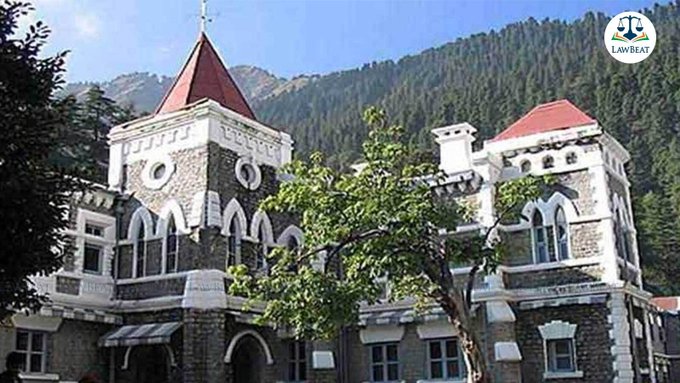Uttarakhand HC directs Family Court to entertain USA resident's plea for mutual divorce through Power of Attorney

The court was hearing an appeal against the order of the Family Court which had rejected a petition moved by a USA resident and his wife jointly for mutual divorce on the ground that the man was not present before the court personally.
The Uttarakhand High Court recently directed the Family Court, Haldwani to entertain a Kentucky (USA) resident's petition for mutual divorce under Section 13B of the Hindu Marriage Act, 1955 through his father as his power of attorney.
The bench of Chief Justice Vipin Sanghi and Justice RC Khulbe expressed its 'dismay' at the approach adopted by the Family Court which had rejected the divorce petition moved by the man on the ground that there was no precedent by the High Court on the said aspect.
Court noted that before the Family Court enough precedents were cited by the parties not only of several High Courts but also of the Supreme Court, which recognize the right of a party to be represented in proceedings under the Hindu Marriage Act, through his/her power of attorney, and despite that the Family Court rejected the petition for mutual divorce.
Court held the approach of the Family Court to be completely perverse and unexpected. Court, therefore, set aside the order of the Family Court and directed it to entertain the man's plea through his power of attorney.
Court, however, made it clear that the presence of the man shall be secured through Video Conferencing.
The high court division bench was dealing with an appeal moved by a resident of Lexington, State Kentucky, USA against the order passed by the Family Court, Haldwani which had rejected the petition moved by the man and his wife jointly under Section 13B of the Hindu Marriage Act, 1955 for divorce by mutual consent. Since the man was unable to come to India, he had filed the divorce petition through his father as his power of attorney.
The Family Court had, however, rejected the petition only on the ground that the man should personally prefer the petition and should remain present in Court.
The only reason given by the Family Court for not entertaining the petition through the appellant’s father as his power of attorney was that there was no precedent by the High Court on the said aspect.
Case Title: Dr. Surjeet v. Dr. Namita
